Stomach Ulcer
How to submit an article:
- Registered users can submit any published journal article that has a unique DOI (Digital Object Identifier) name or link to Research Hub.
- For example, you can paste the full DOI link:
https://doi.org/10.1109/5.771073or just the DOI name:10.1109/5.771073into the field above and click submit. - The person who is first to submit a valid article to Research Hub will forever be credited for it, and every article submission earns you +6 Research Points.
Also known as: Gastric Ulcer
Sub-Topics:
Related Topics
Published research studies are articles that present the findings of original research that has undergone a peer-review process and has been made publicly available in scholarly journals, books or other media.
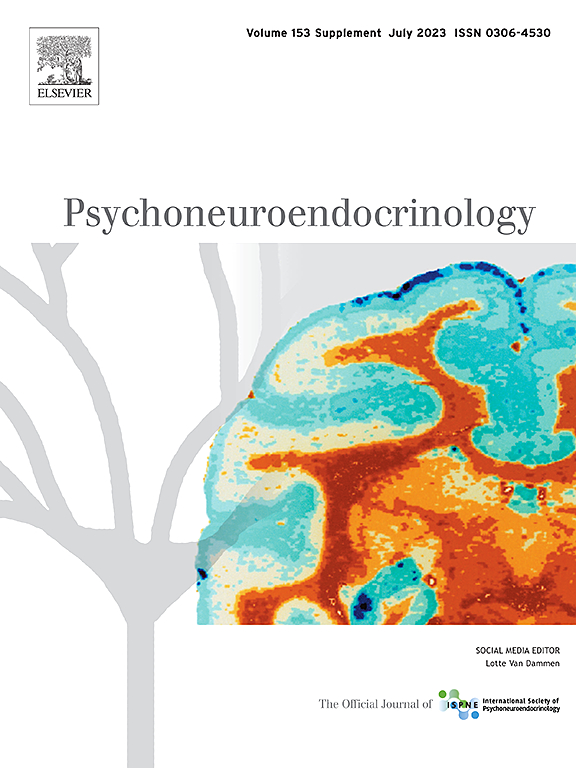
New approaches to the pathogenesis of peptic ulcer based on the protective action of saliva with special reference to roughage, vegetable fibre and fermented milk products
2024 Jan Psychoneuroendocrinology Malhotra SL
Review Article Stomach UlcerPeptic ulcers may be prevented and cured by well-chewed food rich in vegetable fibers and fermented milk products, which increase protective salivary mucus and decrease damaging bile flow.
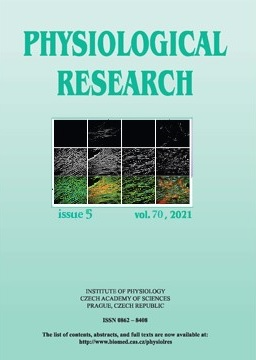
Mineral Water Vincentka and its Influence on Mucosal Ulcers
2022 Dec 30 Physiological Research BUDINSKAYA K, NÁDENÍČEK J, STRAČINA T, HENDRYCH M, PÍREK O, BARTÁKOVÁ A, et al.
Experimental Study Animal Study Stomach Ulcer Mucosal Ulcers Mineral WaterVincentka natural mineral water reduces gastric damage and improves antioxidant capacity in an animal model of acute gastric ulcers.
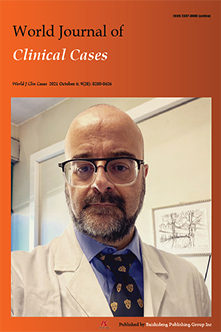
Application of traditional Chinese medicine in treatment of Helicobacter pylori infection
2021 Dec 16 World Journal of Clinical Cases Li RJ, Dai YY, Qin C, Huang GR, Qin YC, Huang YY, et al.
The antibacterial effect of TCM is relatively slow; for rapid improvement of the treatment effect of refractory H. pylori gastritis, we provide an appropriate treatment regime combining TCM and Western medicine with immune-regulatory and synergistic antibacterial effects.
Review Article H Pylori
Gastroprotective Effects of Spirulina platensis, Golden Kiwifruit Flesh, and Golden Kiwifruit Peel Extracts Individually or in Combination against Indomethacin-Induced Gastric Ulcer in Rats
2021 Oct 03 Nutrients Aleid IS, Alfheeaid HA, Aljutaily T, Alhomaid RM, Alharbi HF, Althwab SA, et al.
In conclusion, the presented results proved the antiulcer potential of SP and A. chinensis extracts against an indomethacin-induced gastric ulcer in rats, which may be due to their antioxidant and anti-inflammation efficiency.
Animal Study Stomach Ulcer Spirulina Kiwifruit
Xiao Chai Hu Tang for Peptic Ulcers: A Systematic Review and Meta-Analysis of Randomized Controlled Trials
2021 Apr 30 Evidence-Based Complementary and Alternative Medicine Min Li, Wenchao Dan, Hui Zhang, Yong’en Yun, Qingyong He
Our findings show that Xiao Chai Hu Tang (XCHT) can treat peptic ulcers as part of an alternative medicine approach.
Systematic Review Meta-Analysis Xiao Chai Hu Tang Stomach UlcerResearch insights are moderated by the Research Hub team and offer an at-a-glance overview of interesting research findings.

2024 Psychoneuroendocrinology
Peptic ulcers may be prevented and cured by well-chewed food rich in vegetable fibers and fermented milk products, which increase protective salivary mucus and decrease damaging bile flow.
Review Article
New approaches to the pathogenesis of peptic ulcer based on the protective action of saliva with special reference to roughage, vegetable fibre and fermented milk products
Malhotra SL

2022 Physiological Research
Vincentka natural mineral water reduces gastric damage and improves antioxidant capacity in an animal model of acute gastric ulcers.
Experimental Study Mineral Water Mucosal Ulcers
Mineral Water Vincentka and its Influence on Mucosal Ulcers
BUDINSKAYA K, NÁDENÍČEK J, STRAČINA T, HENDRYCH M, PÍREK O, BARTÁKOVÁ A, et al.

2020 PLOS One
Ban Xia Xie Xin decoction has shown superior effectiveness and safety for treating chronic atrophic gastritis than patent medicine plus western medicine.
Systematic Review Gastritis
Efficacy of Banxia Xiexin decoction for chronic atrophic gastritis: A systematic review and meta-analysis
Cao Y, Zheng Y, Niu J, Zhu C, Yang D, Rong F, et al.

2020 Sains Malaysiana
Honey exhibits significant anti-Helicobacter pylori activity, with at least 10% concentration proving effective in inhibiting gastric and duodenal ulcers, highlighting its therapeutic potential.
Systematic Review Gastritis H Pylori Honey
In vitro Study of Anti-Helicobacter pylori Activity of Honey: A Systematic Review
Adam Q, Annuar F, Alfizah H, Mohd Fahami NA
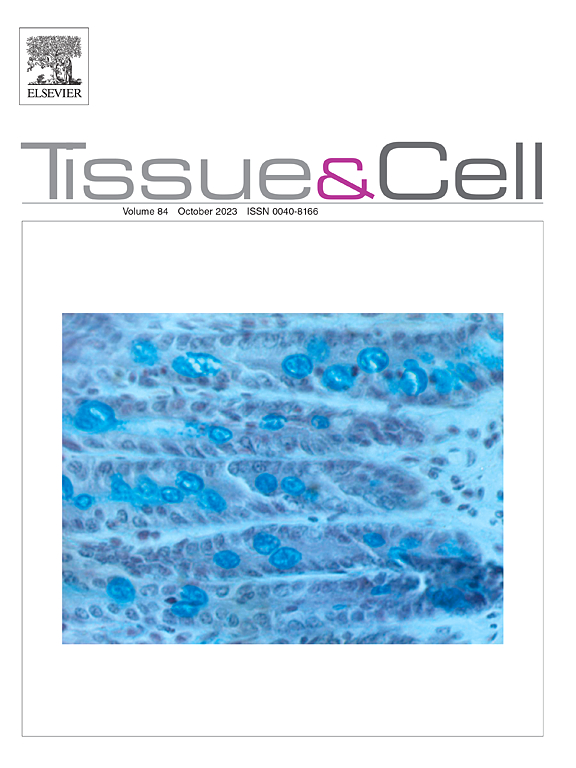
2017 Tissue and Cell
Coconut water and milk demonstrate protective effects against ulceration, reducing inflammation, promoting cell proliferation and supporting mucosal homeostasis.
Experimental Study Coconut Milk Coconut Water
Gastroprotective and mucosa homeostatic activities of coconut milk and water on experimentally induced gastropathies in male wistar rats
Ajeigbe KO, Owonikoko WM, Egbe V, Iquere I, Adeleye G
Review Articles
Review articles summarise and critically evaluate the current state of research on a specific topic or field by synthesising multiple primary research studies.

New approaches to the pathogenesis of peptic ulcer based on the protective action of saliva with special reference to roughage, vegetable fibre and fermented milk products
2024 Jan Psychoneuroendocrinology Malhotra SL
Review Article Stomach UlcerPeptic ulcers may be prevented and cured by well-chewed food rich in vegetable fibers and fermented milk products, which increase protective salivary mucus and decrease damaging bile flow.

Application of traditional Chinese medicine in treatment of Helicobacter pylori infection
2021 Dec 16 World Journal of Clinical Cases Li RJ, Dai YY, Qin C, Huang GR, Qin YC, Huang YY, et al.
The antibacterial effect of TCM is relatively slow; for rapid improvement of the treatment effect of refractory H. pylori gastritis, we provide an appropriate treatment regime combining TCM and Western medicine with immune-regulatory and synergistic antibacterial effects.
Review Article H Pylori
Xiao Chai Hu Tang for Peptic Ulcers: A Systematic Review and Meta-Analysis of Randomized Controlled Trials
2021 Apr 30 Evidence-Based Complementary and Alternative Medicine Min Li, Wenchao Dan, Hui Zhang, Yong’en Yun, Qingyong He
Our findings show that Xiao Chai Hu Tang (XCHT) can treat peptic ulcers as part of an alternative medicine approach.
Systematic Review Meta-Analysis Xiao Chai Hu Tang Stomach Ulcer
Efficacy of Banxia Xiexin decoction for chronic atrophic gastritis: A systematic review and meta-analysis
2020 Oct 27 PLOS One Cao Y, Zheng Y, Niu J, Zhu C, Yang D, Rong F, et al.
Systematic Review Meta-Analysis Gastritis Stomach UlcerBan Xia Xie Xin decoction has shown superior effectiveness and safety for treating chronic atrophic gastritis than patent medicine plus western medicine.

In vitro Study of Anti-Helicobacter pylori Activity of Honey: A Systematic Review
2020 Feb 28 Sains Malaysiana Adam Q, Annuar F, Alfizah H, Mohd Fahami NA
Systematic Review Honey Gastritis Stomach Ulcer H PyloriHoney exhibits significant anti-Helicobacter pylori activity, with at least 10% concentration proving effective in inhibiting gastric and duodenal ulcers, highlighting its therapeutic potential.
Clinical Trials
Clinical trials are research studies that involve people and are conducted to evaluate the safety and efficacy of new treatments or interventions, such as drugs, medical devices, or behavioural therapies.
Study Protocols
Published study protocols are detailed plans that outline the objectives, methodology, statistical analyses, and organisation of a research study that have been made publicly available for others to review and use as a reference.
Presentation Slides

Review Article
Peptic ulcers may be prevented and cured by well-chewed food rich in vegetable fibers and fermented milk products, which increase protective salivary mucus and decrease damaging bile flow.
Malhotra SL

Experimental Study
Vincentka natural mineral water reduces gastric damage and improves antioxidant capacity in an animal model of acute gastric ulcers.
BUDINSKAYA K, NÁDENÍČEK J, STRAČINA T, HENDRYCH M, PÍREK O, BARTÁKOVÁ A, ŠUDÁKOVÁ M, SVÍZELA V, NOVÁKOVÁ Z, NOVÁKOVÁ M, BABULA P

Systematic Review
Ban Xia Xie Xin decoction has shown superior effectiveness and safety for treating chronic atrophic gastritis than patent medicine plus western medicine.
Cao Y, Zheng Y, Niu J, Zhu C, Yang D, Rong F, et al.

Systematic Review
Honey exhibits significant anti-Helicobacter pylori activity, with at least 10% concentration proving effective in inhibiting gastric and duodenal ulcers, highlighting its therapeutic potential.
Adam Q, Annuar F, Alfizah H, Mohd Fahami NA

Experimental Study
Coconut water and milk demonstrate protective effects against ulceration, reducing inflammation, promoting cell proliferation and supporting mucosal homeostasis.
Ajeigbe KO, Owonikoko WM, Egbe V, Iquere I, Adeleye G
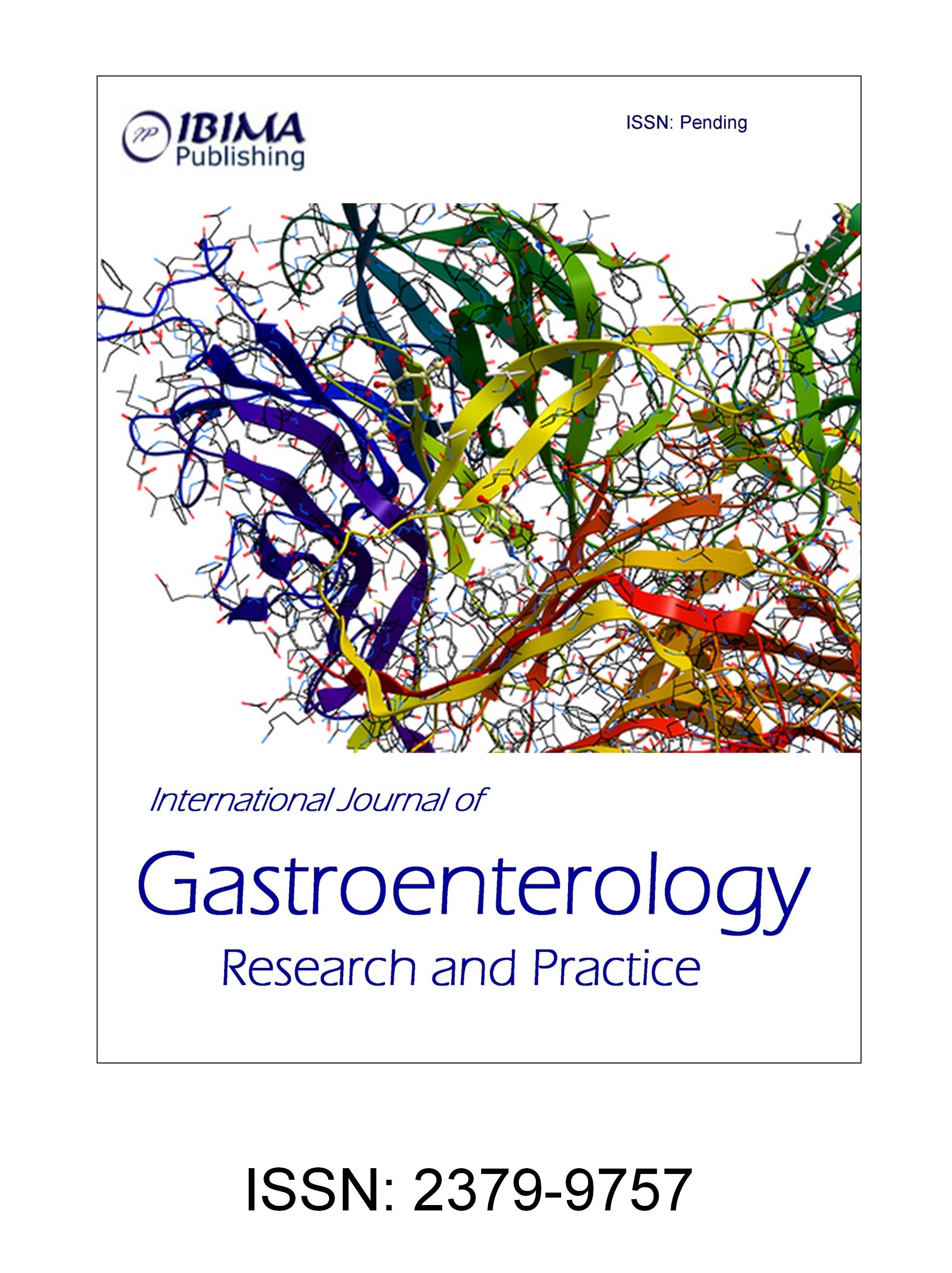
Cohort Study
Regular consumption of honey and yogurt may lower the prevalence of H. pylori infection and reduce the virulence of strains.
Yordanov D, Boyanova L, Markovska R, Ilieva J, Andreev N, Gergova G, Mitov I
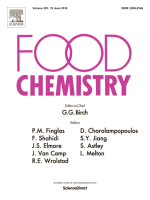
Experimental Study
In 2004, polyphenols were isolated from mung bean sprouts, which exert antibacterial activity against Helicobacter pylori, one of the most common causative organisms in gastrointestinal disorders.
Jiaqiang Luo, Weixi Cai, Tong Wu, Baojun Xu
Executive Summary
Write an executive summary in the form of a blog article on the topic of "Research into Chinese medicine treatment for Stomach Ulcer" summarising the research below and using language that can be easily understood by patients and avoiding medical jargon using a professional and caring tone of voice.
Write an executive summary in the form of a blog article on the topic of "Researched Chinese medicine treatments for Stomach Ulcer" summarising the research below in an objective and easy to understand way, and using language that can be easily understood by patients. Group the article into Chinese medicine treatments first, followed by nutrition and other treatments. Avoid using medical jargon and use a professional and caring tone of voice.
Write me a concise but easy to understand executive summary on the topic of "Chinese medicine treatments for Stomach Ulcer" based on the following research that I will give you. Your summary should be 2 paragraphs long in Australian English spelling and include references to the studies.
A Review Article published in 2024 in the journal Psychoneuroendocrinology found that Peptic ulcers may be prevented and cured by well-chewed food rich in vegetable fibers and fermented milk products, which increase protective salivary mucus and decrease damaging bile flow. The research conducted a review of epidemiologic studies focusing on the variations of diet and eating patterns related to the prevalence of peptic ulcer disease across various communities. The effects of dietary patterns were assessed on saliva, gastric juice, and bile. The role of bile was specifically examined in the pathogenesis of peptic ulcer, with the argument that it, rather than hydrochloric acid, played a causal role. The role of saliva in preventing peptic ulcers was emphasized, particularly the protective nature of salivary mucus which is swallowed with food. The study then suggested the types of diets that can help prevent peptic ulcers, including those rich in roughage, cellulose, vegetable fibers, and fermented milk products such as ghee and yogurt. The research posited this kind of diet can increase the amount of salivary mucus and consequently decrease the flow rate of harmful bile. The study also noted that these insights showed minor changes in diet, and a slower pace of consumption could lead to substantial health benefits. Moving from dietary composition to eating behaviors, it was suggested that food should be well-masticated to ensure these beneficial digestive processes have an opportunity to occur. At the same time, the research made the case that specific dietary components, particularly short-chain fatty acids like those found in milk products, can retard gall bladder contraction, thereby reducing the amount of bile entering the duodenal lumen. This secondary action further contributes to the potential prevention of peptic ulcers.
A Experimental Study published in 2022 in the journal Physiological Research found that Vincentka natural mineral water reduces gastric damage and improves antioxidant capacity in an animal model of acute gastric ulcers. This pilot study involved 16 male Wistar rats, divided into two groups: an experimental group and a control group, each with eight rats. The study was conducted in three phases: a 7-day handling phase, a 7-day phase where the experimental group received Vincentka mineral water and the control group received tap water, and a final phase of acute gastritis induction lasting one day. After 24 hours post-induction, the animals were sacrificed for analysis. Tissue samples from the stomach and duodenum, as well as blood samples, were examined using histological microscopy, immunohistochemical, and biochemical methods. The histopathological analysis showed significantly less damage to the stomach lining in the experimental group compared to the control group. There were notable differences in blood plasma antioxidant capacity, oxidative stress parameters, and other biochemical values between the groups. These findings indicate that Vincentka mineral water positively affects the development and symptoms of acute gastric ulcers in this animal model, suggesting potential benefits for similar human conditions.
A Systematic Review published in 2020 in the journal PLOS One found that Ban Xia Xie Xin decoction has shown superior effectiveness and safety for treating chronic atrophic gastritis than patent medicine plus western medicine. In an analysis of the clinical efficacy and safety of Banxia Xiexin decoction (BXD) for chronic atrophic gastritis (CAG) treatment, seven electronic databases, including Ovid, Embase, PubMed, Cochrane Library, and more, were used. The criteria for inclusion in the study were up until September 21, 2020. A Jadad scale coupled with Cochrane Collaboration's risk of bias tool evaluated methodological quality. Out of the 1985 patients identified for analysis across 26 randomized controlled trials, it was found that BXD treatment provided more effective and safe results than Chinese patent medicine in conjunction with western medicine. Additionally, BXD was seen to improve symptom scores for stomach distending pain and belching. It was also observed that BXD effectively inhibited Helicobacter Pylori, improved HP-related inflammation, and alleviated the degree of glandular atrophy, intestinal metaplasia, and dysplasia of gastric mucosa. Despite the promising results, limitations were identified in relation to methodological quality and sample size across the studies.
A Systematic Review published in 2020 in the journal Sains Malaysiana found that Honey exhibits significant anti-Helicobacter pylori activity, with at least 10% concentration proving effective in inhibiting gastric and duodenal ulcers, highlighting its therapeutic potential. The research involved a comprehensive review of 53 articles from electronic databases such as Medline via Ovid Medline, Scopus, and ScienceDirect spanning from 2000 to 2018. Selection criteria focused on studies reporting honey's effects on H. pylori-induced gastric and duodenal ulcers. Nine chosen articles detailed the positive impact of honey, suggesting a minimum 10% concentration as effective against H. pylori. The review underscores the need for further exploration into honey's active components and molecular mechanisms. The positive outcomes reported in selected studies support honey's potential in inhibiting H. pylori infections, emphasizing the need for further investigations to elucidate the active components and underlying molecular mechanisms. The review sets the stage for future research aiming to provide robust evidence for the use of honey in clinical settings.
A Experimental Study published in 2017 in the journal Tissue and Cell found that Coconut water and milk demonstrate protective effects against ulceration, reducing inflammation, promoting cell proliferation and supporting mucosal homeostasis. The study was conducted in two phases using 45 male wistar rats divided into 9 groups. The first phase involved treatment of five groups with different substances: normal saline, 95% ethanol, coconut water, coconut milk, and Omeprazole. Ulceration was induced with 95% ethanol except in the saline-control group. The second phase involved four groups: a control group, an ulcer control group receiving acetic acid, a group receiving coconut milk and another receiving Omeprazole. Drug treatments were administered twice daily for 3-6 days post-ulcer induction. Afterwards, blood was collected for haemocytometry and gastric tissues were harvested for histological examinations. In this study, both coconut water and milk, as well as Omeprazole, led to reduced ulcer scores and gastric lesion indices compared to the ulcer control groups. They also resulted in significantly lower white blood cell, neutrophil, and lymphocyte counts compared to the ulcer and overall control groups. Coconut milk, in particular, was associated with a significant reduction in C-reactive protein. The experimental treatments also led to reduced neutrophil infiltration and an increase in mucus cell density. Notably, the coconut milk group showed significantly higher expressions of EGFR and CD31, indicating catalysis of mucosa homeostasis through angiogenesis and mucosal cell proliferation.
A Cohort Study published in 2017 in the journal Gastroenterology Research and Practice found that Regular consumption of honey and yogurt may lower the prevalence of H. pylori infection and reduce the virulence of strains. The study evaluated the association between dietary factors and the prevalence of an unnamed infection or virulence strain among 294 adult asymptomatic blood donors. The seroprevalence was evaluated using Enzyme-Linked Immunosorbent Assay. The study employed logistic regression in its analysis. Key dietary factors studied were the frequent consumption of honey and yogurt, specifically >5 days in a week. Smoking and consumption of other dietary factors were also considered. In the analysis of results, it was found that frequent consumption of honey and yogurt was associated with reduced infection seroprevalence and virulence. Specifically, the study discovered a reverse association between honey or yogurt consumption and the prevalence of the virulence strain, marking it as a novel finding. The effect of other dietary factors and smoking were, however, found to be insignificant in disease prevalence. The study suggests that regular honey and yogurt consumption could enhance control in therapy for the infection.
A Experimental Study published in 2016 in the journal Food Chemistry found that In 2004, polyphenols were isolated from mung bean sprouts, which exert antibacterial activity against Helicobacter pylori, one of the most common causative organisms in gastrointestinal disorders. The utility of bioactive compounds from food legumes as natural antimicrobial agents are commonly known as biocides. Mung bean sprouts have potent antiviral and prophylactic activities against respiratory syncytial virus and Herpes Simplex virus −1, and these activities were comparable with Acyclovir. The underlying mechanism was attributed to active components of mung bean sprouts potentially induce antiviral cytokines in human cells and thereby nullify the actions on viral proliferation. Similarly, antifungal and antiviral potency of two beans proteins, designated alpha (28 kDa) and beta (28 kDa) proteins were isolated and were capable of inhibiting human immunodeficiency virus reverse transcriptase and glycohydrolases associated with HIV infection. Further, antifungal peptides (7.3 kDa, 9.03 kDa) were isolated from beans, which exerted an antifungal effects and inhibited mycelial growth in Fusarium oxysporum, F. solani, Pythium aphanidermatum, Sclerotium rolfsii, Mycosphaerella arachidicola, and antibacterial effects on Staphylococcus aureus. In addition, two proteins, Mungin (18-kDa) and chitinase (30.8 kDa) isolated from mung bean seeds possess antifungal activity against Rhizoctonia solani, Coprinus comatus, Mycosphaerella arachidicola, Botrytis cinerea, and Fusarium oxysporum. Mungin and chitinase exert an inhibitory activity against α- and β-glucosidases, suppressing [3H] thymidine in the corporation by mouse splenocytes. In 2004, polyphenols were isolated from mung bean sprouts, which exert antibacterial activity against Helicobacter pylori, one of the most common causative organisms in gastrointestinal disorders. Furthermore, several in vitro and in vivo studies have also been reported that mung bean seeds are protective against sepsis.
Moderation Tools
Topic
Sign In
Users not signed in are limited to viewing the 5 most recent items of content.
